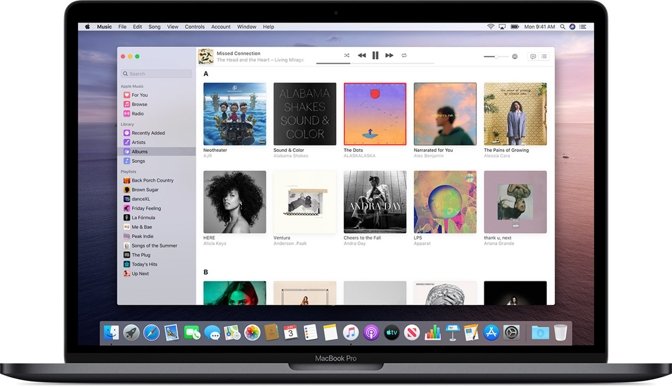Apple must face lawsuit alleging that 'buying' media on iTunes is misleading
Apple must face a lawsuit claiming that it is misleadingly telling customers they can "purchase" content on iTunes or Apple TV, a federal judge ruled Thursday.

Credit: Apple
The complaint argues that Apple is deceiving customers by saying they "can" buy media content like movies and TV shows on its platforms, such as the legacy iTunes app or the Apple TV app. It alleges that Apple reserves the right to terminate access to purchased content, essentially claiming that a consumer doesn't actually own it.
Apple tried to file a motion to get the original lawsuit dismissed. But, on Thursday, U.S. District Court Judge John Mendez ruled that Apple must face the complaint, according to The Hollywood Reporter.
"Apple contends that no reasonable consumer would believe' that purchased content would remain on the iTunes platform indefinitely," Mendez writes in his opinion.
"But in common usage, the term 'buy' means to acquire possession over something. It seems plausible, at least at the motion to dismiss stage, that reasonable consumers would expect their access couldn't be revoked," the judge added.
Apple attempted to get the lawsuit dismissed with other arguments, claiming that the plaintiff's injury is speculative instead of concrete. Judge Mendez, however, disagreed with that assessment.
Judge Mendez did toss out the unjust enrichment claim of the original lawsuit. Nevertheless, he left open the possibility for injunctive relief that could force Apple to change the way it sells or markets content.
Amazon is facing a similar lawsuit that was levied against the company in October 2020. In its defense, Amazon says that users don't actually own content. Instead, it says that "buying" a movie or TV show on Amazon Prime Video amounts to obtaining a limited license to view the content.
Apple has faced criticism in the past for allegedly removing "owned" user media content. The Cupertino tech giant made no ownership claim like Amazon did but said that content users have already downloaded "can can be enjoyed at any time and will not be deleted unless [a user has] chosen to do so."
Read on AppleInsider

Comments
They know people think they are buying it. Purely deceptive.
So looking forward to the decision of the court here...just pleeeeeease stop being so one-sited, it is essentially an general industry issue, not Apple specific 🙏
Or, is it more like how you can't get another copy of a physical book or CD after they wear out, or get accidentally thrown out?
Has Apple been increasingly tethering everything it can since 2011...?
The problem arises when you choose to keep on streaming it from Apple, rather than to save a copy on a hard drive. (Many people do this to save space on their hard drive.) That's because Apple do not own the content. If the owners of the content no longer wants their contents available to the public or to Apple, Apple must delete it from their servers. It's not up to Apple to allow you to keep streaming contents that you bought, that the owner of the contents no longer want to make available to Apple. But the owner of the content can not force you to delete it from your hard drive. You can still play it from your hard drive for as long as you have the Apple account that it's tied to.
Plus if you lose or damage your hard drive, you can re-download any purchased media from Apple for free, providing its still available on Apple servers. Try doing that with a physical disc purchased at Best Buy or Walmart.
The judge should have dismissed the lawsuit, he is wasting the time of the court system and taxpayer money. The lawsuit is nonsense and those arguing otherwise are, from what I can see, simply attacking Apple. “Buy” is the correct word. One is exchanging something of value, money, for something else, a limited rights license allowing access to digital media where the terms of the access are specified by the license. If “buy” is not the correct word, then it might as well be purged from the English language altogether because this doesn’t just apply to digital media delivered electronically. It applies to almost everything you “buy.” When you “buy” something you don’t get essentially unlimited rights to the object. That purchase is limited by the contract terms of the purchase, the law, license terms, etc.. And it’s not just true for purchases of “digital goods” it applies to purchases of physical items as well. When you “buy” a car you don’t get the right to disassemble and replicate the car and sell those copies. When you “buy” a home you don’t get the right to just rip it down and put up a shopping center (at least not usually). There are always, terms, conditions, laws, or licenses limiting your rights with regards to anything you “buy.”
It is something that's kinda' buggrd me for a while now
In the 500+ purchases of movies via iTunes/Apple TV, I've been fortunate (at least to my knowledge as Apple doesn't tell you if you're losing access to a title) to lose just one movie, thanks to the distributor pulling it from iTunes. About 3 months later, they pulled the same film from Amazon Prime.
In terms of downloading and backing up movies and media, this is becoming unrealistic to expect consumers to do this - especially when primary consumption is via the Apple TV device, iPhone, iPad, or whatever. NASes and high-capacity hard drives are, I feel, still a thing for the more proficient user. Besides this, you can only download the SD or HD version of the movie (so 4K is out) and you can't download the iTunes Extras if there are any.
So yes, I think Apple needs a kick-up the arse for this. But so do the distributors and studios, and all the other digital platforms.